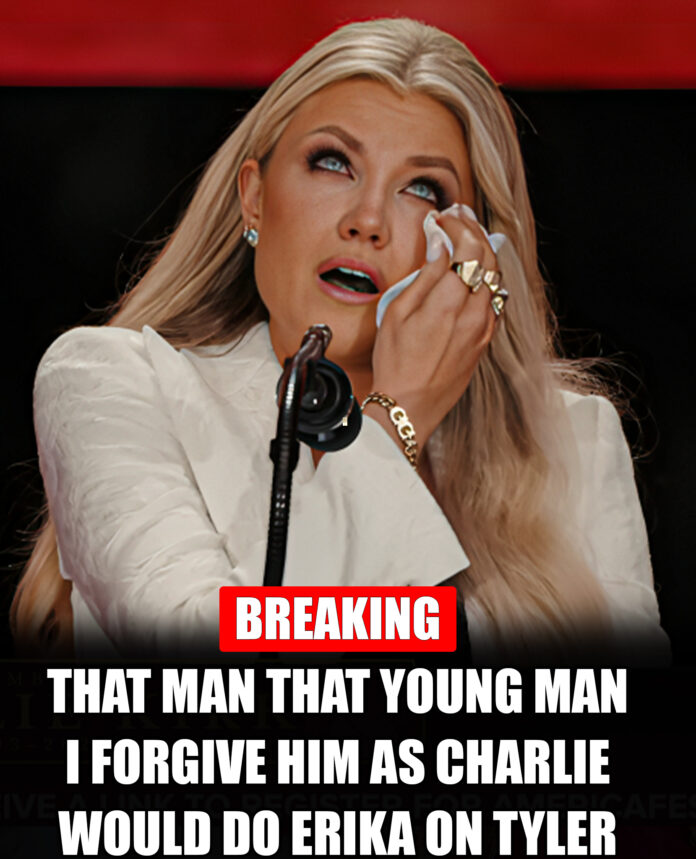In a moment that has captivated and moved millions across the country, Erika Kirk, widow of conservative activist Charlie Kirk, made headlines during her husband’s memorial service by publicly forgiving the man accused of killing him, 22-year-old Tyler Robinson. Her words, filled with faith, compassion, and courage, have sparked national reflection on forgiveness, justice, and the power of grace amid tragedy.
The memorial service, held on September 21, 2025, at State Farm Stadium in Glendale, Arizona, was attended by thousands of supporters, leaders, and loved ones of Charlie Kirk, the founder of Turning Point USA. Amid the pain and heartbreak, Erika stood on stage and delivered a message that echoed the words of Jesus Christ: “Father, forgive them, for they know not what they do.”
With poise and conviction, she declared, “That young man… I forgive him.” Her statement was not just a personal expression of healing, but also a bold call for the nation to respond to hate with love. “The answer to hate is not more hate,” she said. “It is love. Love for our enemies. Love for those who persecute us.”
Charlie Kirk was a controversial figure in American political life, known for his passionate advocacy for conservative values, free speech, and college campus activism. His unexpected death earlier this year shocked many, and the arrest of Tyler Robinson, a troubled young man with a complicated past, added further complexity to an already emotional story.
Yet Erika Kirk’s response transcended politics. Her forgiveness was not about excusing the act, but about rising above vengeance. It was rooted in her deep Christian faith — a faith she shared with her late husband. “Charlie believed in redemption,” she said. “And I do, too.”
Many have called Erika’s words a defining moment of moral clarity in an increasingly divided society. Political commentators, faith leaders, and everyday Americans have responded with admiration and introspection. Her message challenges the cultural norm of retribution and invites a conversation about the place of mercy in modern justice.
Some critics, however, have questioned whether forgiveness should come so soon — before a trial, before full justice is served. But Erika’s response does not negate the legal process. Rather, it distinguishes personal forgiveness from institutional accountability. Her faith compels her to release the burden of hatred, while still seeking truth and justice.
The nation continues to watch the legal proceedings involving Tyler Robinson, but Erika’s example stands on its own. In her grief, she modeled what it means to choose love in the face of unimaginable pain.
As she closed her remarks, Erika said, “The world needs Turning Point USA now more than ever. Not just to win arguments — but to spread truth with love.” In that moment, her words offered a vision not just of political perseverance, but of spiritual resilience.
Whether one agrees with her or not, Erika Kirk’s act of forgiveness has stirred hearts and sparked vital conversations — about healing, faith, and the hope that love can be stronger than hate.
